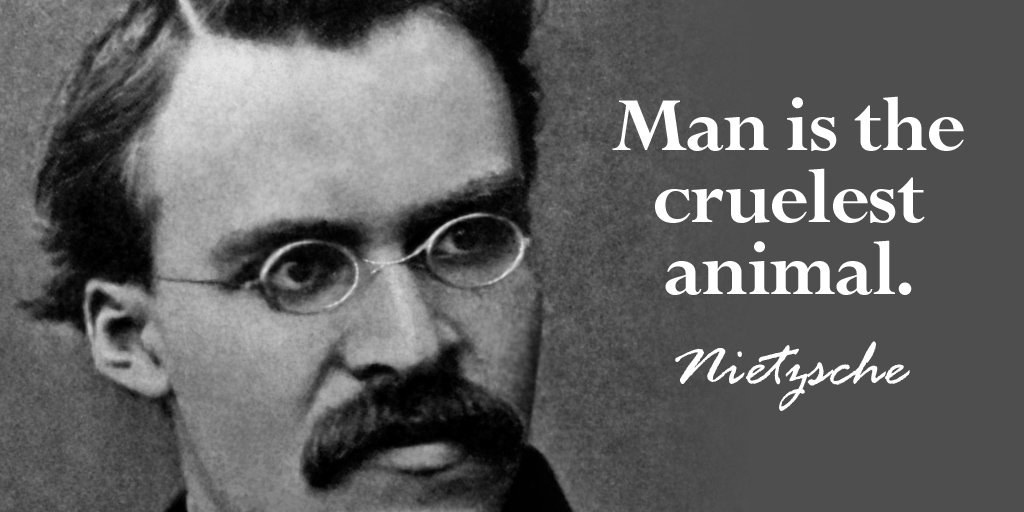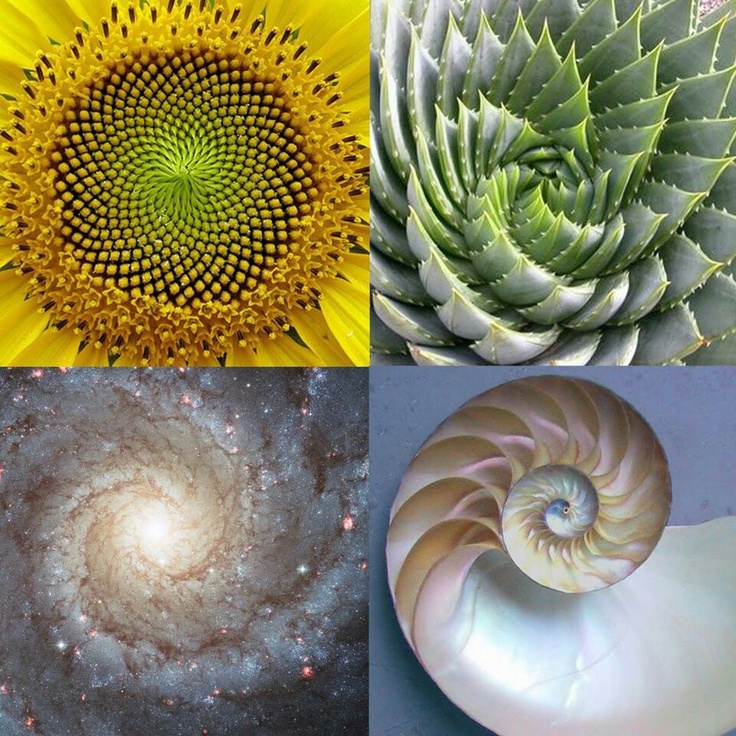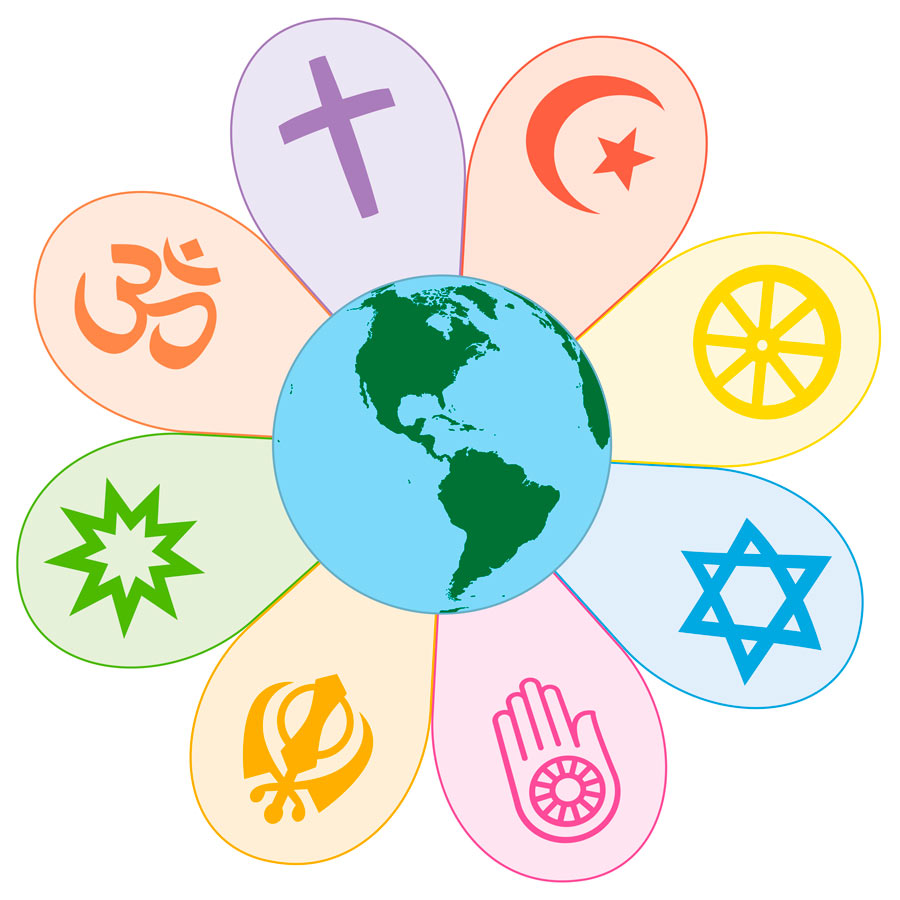Why I Am A Christian
- Awe and wonder, science, fear, and purpose leads me to God.
- My shame and guilt drives me to my knees
- Grace, love, hope and reason leads me to Christ
- Gratitude and purpose keep me in His Spirit
- Whom I now see was there with me all along.
Here's the detail below - in a discussion format
I hope it makes sense to you -
God bless!
Mike--
Our Spiritual Journey
Everyone is on a spiritual journey - I call it our "life quest."
Each of us is at a different place along this journey, but we all seem to be trying to find our purpose in life, what is important to us, and how we should act.
Some of us wonder about it all our lives, some only occasionally, and for some it only shows up during times of crisis.
Some claim that this exploration doesn't apply to them; and I suppose there may be a few true atheists inside a foxhole, but I find that so unlikely that it probably isn't the norm.
I further suppose that there are those who just don't care and don’t think about this much; they simply live their lives according to their passions.
But this is such a disrespectful position to take; it's insulting to our gift of intelligence that sets us apart from the rest of the natural world. It's a waste of our talents and of our potential.
After much study and contemplation (including a comparative religion and Christian Apologetics Master of Arts program), I've concluded, that Christianity is the only life system that makes any sense at all.
In this brief discussion, I'll try to document my journey quickly and concisely, so you can see how I arrived at this conclusion. I hope it makes sense to you, sparks some debate at the least, or hopefully some serious contemplation and reflection.
The Spiritual Quest
There seems to be one clear feature that separates us from the animals; that difference can be defined as our deep awareness, both of self and of the larger picture.
Included in this unique feature is the ability to self-reflect and to make moral choices, as opposed to possessing only selfish survivalist or pleasure seeking desires. Indeed, anyone who does not engage in self-reflection I believe finds themselves not utilizing the key differentiator that we have from the animals.
This feature of self-reflection can push us towards what some classify as a spiritual quest. Since the beginning of history people have been trying to make sense of the big questions, and how we (and of course the more personal "I") fit in to the grand scheme of things, what we should be doing about it and why.
Why does there seem to be right choices and wrong choices, and what is the purpose of life? Where did everything come from? Where is it all going? What should I do about it?
These are all pretty deep subjects - we all have pondered them, some more than others. Some seem to get lost in them, looking hard for answers, sometimes giving up, sometimes trying hard to ignore them. Some don't think about them often, and would rather they go away.
But they usually pop back up again at odd moments, when we feel that sense of hopelessness or insignificance. Some worry about then so much they accept crazy ideas for answers or some may even make the answers up!
The Failure of Self-Centeredness
The alternative to a life of self-reflection is a life of self-absorption - narcissism.
It is very easy to get overcome with the pursuit of selfish gain and pleasure - not that advancement of self is wrong, when utilized to expand knowledge and assist others in a respectful pursuit of personal growth designed to achieve mutual growth.
Instead it's the blatant and obvious pursuit of selfish passions for their own end that always seem to get us into trouble – and always fails, eventually.
We've seen it many times - people pursue happiness via the big three - money, sex, and power, only to eventually be overcome and destroyed by them.
Why is this? Why is it that the things that we think will make us happy end up eating us alive?
Could we fail miserably at this because this is not how we are designed to be?
It seems that all that glitters is not gold, that we never can seem to arrive at a position of bliss and happiness that lasts very long; we always mess it up, or at least want more.
Perhaps the truth is found in the opposite of self-absorption; perhaps the real source of success and happiness is not some hopeful destination of happiness found within self-interest, but instead found in the pursuit of Truth, meaning, purpose and explicitly NON-selfish endeavors?
THE JOURNEY TOWARD TRUTH
We know that scientific cosmological evidence points back to an initial event.
It's a creation event.
Something must have started it off for a reason, and that something must be outside of the creation that it started, by definition.
This “being” must be very special - so we wonder what it could be like.
We see order, beauty, logic, and purpose evident everywhere - yet none of that is physical.
Could these things be a hint of what that special, non-physical being may be like?
Love seems to also be a huge driving force in our lives…it also seems non-physical. When I think about it, even life itself seems to be non-physical, and possibly another indicator of the nature of "the other".
Think about it – there is no physical explanation of how life comes about; we don't even know how to extend it very long, much less make it come back once it's gone.
Summarizing all of these unique yet pervasive features - order, beauty, logic, purpose, love, and self-existence, and then add to that the power and authority to create the entire known cosmos - which of course includes ME and YOU, we come to the conclusion that this being would display mind boggling and humbling power.
It seems to be a thing of immense awe, wonder and beauty, clearly a thing worthy of contemplation and reflection.
Far from a “God of the Gaps” argument, I am instead arriving at a conclusion based on contemplation of evidence I see every day.
When I stop to consider my own self, I realize I seem to be very small and insignificant compared to the immensity of the cosmos and of time.
Yet I also seem to be amazingly complex and important - much more advanced (and important?) than the average being of creation, such as a rock or a rat.
And, to a smaller degree, I seem to exhibit a bit of these amazing non-physical properties that the amazing being must have - or at least an understanding and recognition of them, whereas those other creatures don't seem to understand them.
For thousands and thousands of years, mankind has contemplated all of this - just like I am.
They arrived at a category for this type of being - they called it God.
They called the sense of wonder we all have the “spiritual” side of us. So the contemplation and wonder of it all is perfectly normal. It's what we humans do - we seek faith in things we can't understand.
I use the word faith carefully, because “Faith” has received a bad reputation lately, at least from those who think that all the answers can be found in the physical world because they think that the physical world is all that there is.
They misrepresent and diminish science when they begin from the assumption that the physical world is all that there is – yet ironically they can't explain the non- physical things mentioned above; these things can't be measured, quantified, or even touched.
To further extend the irony, for the physical sciences to advance, they must take many things 'on faith'; things such as the uniformity of nature, laws of logic, that our senses are reliable, and so on.
There are great reasons to take these things on faith, one of them namely because they do indeed advance scientific endeavor, but they are nonetheless baseline ground rules assumed and taken on faith.
Faith is simply another word for trust; trust in things we can't necessarily prove, yet make sense to us.
For instance we have faith that the chef at the restaurant is using safe cooking practices and that we won’t get sick from eating poorly prepared food; or that our doctor prescribes the right medicine, and that the pharmacist dispenses it correctly.
We have faith that the driver on the other side of the road will stay on his side of the line. I have faith that my family truly does love me and aren’t just living here with me to take advantage of me.
For heaven’s sake, I don’t even ‘know’ for sure what my birthday is – I take it on faith that my mother isn’t lying and that the doctor wrote the date down correctly on my birth certificate!
I have good evidence that I rely on, but I can’t prove it 100%. So, do you see how we all live our everyday lives in a constant state of faith?
It’s actually quite normal. We take all the evidence around us, make what we think are valid and strong conclusions, and move on.
The same thing is expected in a pursuit of the spiritual, as long as it lines up with our everyday observations.
Therefore, the conclusion that there is a God is a valid one; it lines up with what I see every day and in deep contemplation.
And I’m in good company; the vast majority of all the people who have ever lived have come to the same conclusion!
Comparing Religions
Right and wrong can be added to the list of non-physical things that make me wonder.
We can also add guilt to that list.
Where do these things come from? What are they exactly? Why are they there? What do I do about them? Why does everyone seem to have the same experience with these ideas that I do?
Could it be because we are indeed not living as we were designed to?
The various religious traditions have described many different types of gods, and most of them have a set of rules to obey to appease them.
While it may seem initially confusing to understand why there are so many different gods described, perhaps the truth is that we are wired in such a way that this feeling of guilt drives us to look for the answers - as well as look for a way away from the feeling of ‘doing wrong’ - salvation from the guilt, in other words. We want peace of mind.
Maybe one of these gods is the right one - perhaps there is a little bit of truth in all of their 'rules'.
Perhaps that is the point - mankind has been searching for a way to get away from the guilt for ages - now the question becomes: which set of rules?
How do we achieve relief from the guilt?
I want to find the truth behind all of this stuff that is so mysterious to me – and I want to be relieved of my guilt.
We learn from life that we can never seem to please ourselves; our pursuits for happiness never end. I want to get out of the endless cycle of selfish pursuits that leads to more pain and destruction and futility.
A quick analysis of the faith systems show that there is a huge variety of answers; they are all so vastly different from each other that they can't all be true.
Atheism says that nature is all there is… I think this belief system fails from the get-go.
It's like they're not paying attention to the questions. Besides, I don't have enough faith to believe that something (in fact everything!) came from nothing, or that order can come from chaos, or life from non-life.
For the people who claim to need evidence for unseen things, they prove very hypocritical in these particular areas. When the non-physical questions we all have get written off in a circular argument describing them as physical, this ironically defies observation.
Islam smacks of a man-made religion- the worst kind of con.
Stoking off of and taking advantage of the spiritual needs of many, a man invents a god that demands so much of his people, yet conveniently gives the man in charge the authority to save or not save, and directs his followers in ways that enable his own power and sex and money, and then spreads and controls the message via conquest and destruction.
Buddhism gives up on reality because it is too hurtful and calls it inexplicable. In fact, all is maya- or an illusion. The only hope for escape is the acceptance that the world and all its suffering is not real - then we enter nirvana, which is actually eternal obliteration.
Hinduism is the opposite of Buddhism – they have countless gods, assigned to controlling everything from life to death, and everything in between.
There no plan of salvation except for appeasement - and how can one appease innumerable gods?
Judaism has a familiar god, along with the expected rules. But the rules are just too hard to follow. They aren't livable - meaning that they're unachievable. So what's the point of that? If it's not livable, it can't be true.
Christianity is different. There is the creator, lawgiver, and a purpose and design for life; just as we see.
Yet we have grace, and mercy, and we have Jesus. Christianity is not a list of rules to “obey or die”; instead it’s a way above and beyond those rules. Not around them; above them.
Grace is the only thing that makes sense in this world, allowing freedom from the weight of sin and allowing us to move on and serve as we were designed to.
It is not the hateful caricature so many blame it to be; it is the path of love, forgiveness, and creation.
Christianity and Grace
We are looking for truth, and looking for hope.
In Christianity, we see a God that is described as the LOGOS – He is by definition Logic/reason/truth – these don’t come from Him, they ARE Him!
We also find that He is love - not just the source of love; He actually is love!
He is the embodiment of purpose, of creativity, and of destiny.
He is the source of us!
We find in Christianity that He established those rules and the feeling of guilt within us in order for us to look for the hope we need and fulfill our purpose, when we find we can't keep the rules by ourselves.
Again, He did this to have us search for him!
Understanding this brings our search all together. It’s how we find out who we really are, and how to achieve happiness by living to our fullest potential.
We want to know what God is like. So God us an example - Jesus.
He is our example, our model for living.
I want to know that I can be saved from my guilt - so God sent Jesus.
His sacrifice bridges the gap for us between the perfect for the imperfect, the eternal for the dead.
He took on the challenge for us and paid it in full - and he priced this by his resurrection from the dead.
We don't deserve it, that's why it's called grace!
We can’t do it ourselves, so we deserve a total divorce from our Creator and Original Likeness, because we spat in the face of the One who is the source of all the wonderful things we spoke of earlier, and pursued our own selfish agendas.
How ridiculous! How insane when we think of it! Especially when we find that all our selfish pursuits ALWAYS end up in eventual failure!
But God rewards those who surrender their trust and faith to Him with grace and hope.
We find purpose in our lives and success in our pursuits.
We have a path to follow now, and it's all because we realize that the source of all Love, Hope, Purpose, Logic, and Meaning wants us to be happily bathed in all that good stuff (Him!)
The author of Romans sums up our response to this amazing gift of grace the best: Romans 12:1-2.
“Therefore, I urge you, brothers and sisters, in view of God’s mercy, to offer your bodies as a living sacrifice, holy and pleasing to God—this is your true and proper worship. 2 Do not conform to the pattern of this world, but be transformed by the renewing of your mind. Then you will be able to test and approve what God’s will is—his good, pleasing and perfect will.”
Remember, while all the other 'religions' require good works to achieve salvation, Christianity only require an understanding that we are NOT the center of the world (repentance) and then faith (trust) in God’s mercy.
This is the gift of Grace. It is THEN we happily obey, because of gratitude for the realization of the wonder of God and of His amazing grace.
Tim Keller summarizes it best:
"The Bible’s purpose is not so much to show you how to live a good life. The Bible’s purpose is to show you how God’s grace breaks into your life against your will and saves you from the sin and brokenness otherwise you would never be able to overcome… religion is ‘if you obey, then you will be accepted’. But the Gospel is, ‘if you are absolutely accepted, and sure you’re accepted, only then will you ever begin to obey’. Those are two utterly different things."
Seeking is the Key – the heart must be open; when we are consumed with our own selfish desires, we cannot hear the call of the Lover of our Souls.
"Discovery of truth depends on the heart and will, not just the head and mind. This is why the prime requisite for finding any great truth (like God, or the meaning of life or death, or who we are and what we ought to do, or even finding the right mate and career) is love, passion, questing and questioning. Once we pursue a question with our whole being, as Socrates pursued “know thyself”, we will find answers. Answers are not as hard to come by as we think; and questions, real questioning, is a lot more rare and precious than we think. Finding is not the problem, seeking is."—Peter Kreeft
We share the gospel (good news) because we have found the answer that makes sense.
In fact, we do our fellow man a disservice if we don’t show them the way out of the dungeons of fear, despair and hopelessness, as well as show them the way out of the inevitable failure cycle of selfish pursuits that always fail- or at best all disappear.
We show them the way of Love, purpose and meaning that makes sense of the world, and even of our deep personal desires.
Because if we indeed have discovered the cure for mankind’s ills, it would be a terrible thing to not share the Truth, and help pull them away from personal destruction.
This is why I'm a Christian.
Because it makes sense.
It fits the whole man - and all our experiences
And there is hope - and Grace.
Amen
Want A Quick Introduction To Apologetics?
Get my Free 5 Day Email Course
And - Get Updates on the new releases and free Info As They Come available
























